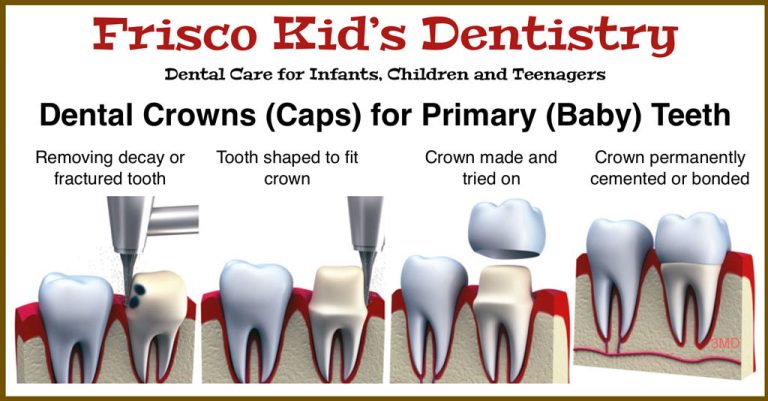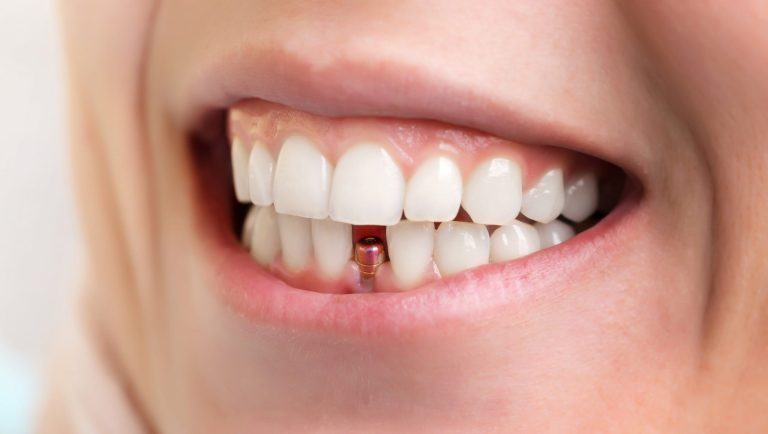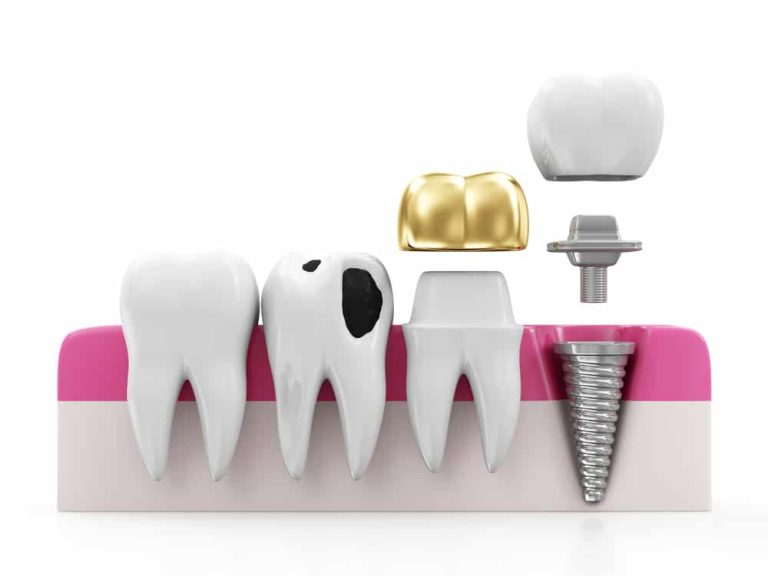Dental Crown Pain After Years: How to Find Relief?
Last Updated on 6 months by DR. ALBIN SIPES
Dental crown pain after years can occur due to various reasons and should be evaluated by a dentist for proper diagnosis and treatment. Introducing the topic of dental crown pain after years, it is important to understand that this discomfort can arise from a range of causes and may require a professional evaluation by a dentist to determine the underlying issue and appropriate treatment.
If you have been experiencing pain or discomfort near a dental crown that has been in place for several years, it is crucial to seek dental attention promptly to address the problem and alleviate your discomfort. In this article, we will explore the potential causes of dental crown pain after years, discuss possible treatment options, and offer tips for preventing future issues with dental crowns.
Understanding the reasons for this pain and seeking timely dental care can help ensure a healthy and functional smile for years to come.
Understanding Dental Crown Pain After Years
Understanding dental crown pain after years is crucial for individuals who have undergone dental crown treatments. There can be various causes behind this discomfort. One factor is the impact of aging, which can lead to the deterioration of the crown’s material over time.
Additionally, wear and tear contribute to the weakening of the crown structure, causing pain and sensitivity. Therefore, regular dental check-ups are vital to monitor the condition of the crown and address any potential issues early on. By staying proactive and seeking professional assistance, patients can prevent and alleviate dental crown pain, ensuring long-lasting oral health and well-being.
Common Causes Of Dental Crown Pain
Dental crown pain after years can be caused by various factors. Decay or infection underneath the crown is a common culprit, leading to discomfort. Nerve damage or irritation may occur if the crown is placed too close to the nerve endings.
A misaligned or poorly fitting crown can also result in pain, as it may put pressure on surrounding teeth or gums. It is crucial to address these issues promptly to alleviate the discomfort and prevent further complications. Regular dental check-ups and proper oral hygiene practices can help identify and address any potential problems with dental crowns.
Seeking professional dental care is essential for resolving dental crown pain and ensuring optimal oral health.
The Effects Of Aging On Dental Crowns
Dental crown pain can occur after several years due to the effects of aging on these dental restorations. The wear and tear that dental crowns experience over time can lead to discomfort. Additionally, the materials used in crowns can weaken, increasing the risk of cracks or fractures.
This can be uncomfortable and may require a visit to the dentist for evaluation and possible replacement of the crown. It is essential to take proper care of dental crowns, practicing good oral hygiene and avoiding habits that can put excessive pressure on them.
Regular dental check-ups can help identify any issues with dental crowns early on, preventing pain and further complications. If you are experiencing dental crown pain after years, consult your dentist for appropriate diagnosis and treatment options.
The Importance Of Regular Dental Check-Ups
Dental crown pain can occur even years after getting the crown. Regular dental check-ups are crucial as they allow for early detection of potential issues. Cleaning and maintenance of dental crowns are also important to prevent discomfort. Necessary adjustments or replacements may be required to alleviate any pain.
It’s essential to prioritize dental care to avoid long-term complications. Ignoring regular check-ups can result in more significant problems down the line. Taking proactive measures and seeking professional assistance can help ensure the longevity and comfort of dental crowns. Don’t wait for the pain to worsen, schedule regular check-ups to maintain your oral health.
Finding Relief For Dental Crown Pain
Years after getting dental crowns, it’s common to experience pain and discomfort. To find relief, consider over-the-counter pain medication options. These can help alleviate the discomfort associated with dental crown pain. Additionally, there are home remedies that you can try, such as applying a cold compress to the affected area.
Another option is consulting with your dentist for expert advice. They can provide recommendations tailored to your specific situation. Don’t ignore dental crown pain as it can worsen over time. Taking proactive steps to address the discomfort will help you find relief and ensure the longevity of your dental crowns.
Remember to consult with your dentist to determine the best course of action for your individual needs.
Over-The-Counter Pain Medication Options
Dental crown pain after years can be managed effectively with over-the-counter pain medication options. To alleviate discomfort, it is vital to follow appropriate dosage and usage guidelines. By taking the recommended dosage, the pain can be relieved without any adverse effects.
However, it is essential to take precautions and be aware of potential side effects. When choosing an otc pain reliever, consult with a healthcare professional for personalized recommendations. They can provide guidance on the best options based on individual circumstances.
Managing dental crown pain is crucial for maintaining overall oral health and well-being. With the right approach, individuals can find relief from discomfort and continue their daily activities comfortably.
Effective Home Remedies For Dental Crown Pain
Dental crown pain can sometimes occur even years after the procedure. To find relief at home, consider warm saltwater rinses. These can soothe discomfort and reduce inflammation. Another option is applying numbing gels or clove oil directly to the affected area.
These natural remedies can provide temporary relief. Additionally, over-the-counter dental adhesives can be used to alleviate pain while waiting for a dental appointment. Proper oral hygiene, such as regular brushing and flossing, can also help prevent further complications. Remember to consult with a dentist for a proper diagnosis and treatment plan.
Dental crown pain should not be ignored, and seeking professional help is always recommended to address the underlying cause effectively.
Consulting With A Dentist For Expert Advice
Dental crown pain after years can be a cause of concern and discomfort. It is important to consult with a dentist for expert advice. Professional evaluation is crucial in understanding the symptoms and potential treatment options. By discussing your concerns and symptoms with a dentist, you can explore the best solution for your dental crown pain after years.
Whether it is due to an underlying issue or simply normal wear and tear, a dentist can provide the necessary guidance and recommend appropriate treatments. Dental crown pain should not be ignored, as it may indicate a need for adjustment, replacement, or further investigation.
Consulting with a dentist ensures that your dental health is properly evaluated, and any necessary steps can be taken to alleviate your pain and restore your dental crown’s functionality.
Preventing Future Discomfort With Dental Crowns
Dental crown pain after years can be prevented by maintaining good oral hygiene practices. Brush and floss regularly to keep your teeth and gums healthy. Avoid habits that can damage dental crowns, like biting on hard objects or grinding your teeth.
It’s also important to schedule regular dental check-ups for early detection of any issues with your dental crowns. By following these tips, you can ensure that your dental crowns stay comfortable and pain-free for years to come. Remember, prevention is key when it comes to dental crown pain.
So take care of your oral health to prevent any discomfort down the line.
Practicing Good Oral Hygiene
Practicing good oral hygiene is essential to prevent dental crown pain after years. Proper brushing and flossing techniques are important to maintain the health of the crown. Use non-abrasive toothpaste to avoid damaging the crown’s surface. Incorporate mouthwash into your routine for added protection against bacteria and plaque buildup.
Regularly visit your dentist for professional cleanings and check-ups to ensure the crown’s longevity. By following these practices, you can keep your dental crown free from discomfort and enjoy a healthy and pain-free smile for years to come. Don’t neglect your oral hygiene, as it plays a crucial role in maintaining the health of your dental crown.
Habits To Avoid To Prevent Crown Damage
Dental crown pain after years can be caused by several factors. One of the habits to avoid to prevent crown damage is chewing on hard or sticky foods. These can put excessive pressure on the crown, leading to discomfort or even dislodgement.
Another habit to steer clear of is clenching or grinding teeth, as this can wear down the crown and cause pain or sensitivity. Additionally, avoiding using teeth as tools, such as biting on hard objects or opening packages, is crucial to maintaining the longevity of the dental crown.
By being mindful of these habits and taking necessary precautions, individuals can minimize the risk of experiencing dental crown pain years after it has been placed.
You can read what discussed on quora
Frequently Asked Questions Of Dental Crown Pain After Years
Can Dental Crowns Cause Pain After Many Years?
Yes, it is possible for dental crowns to cause pain after many years. This can happen due to various reasons such as decay underneath the crown, gum disease, or an ill-fitting crown that puts pressure on the surrounding teeth.
What Are The Signs Of Dental Crown Problems?
Signs of dental crown problems include pain or sensitivity when biting down, gum inflammation around the crown, chipping or cracking of the crown, and discoloration of the tooth beneath the crown. If you experience any of these symptoms, it’s important to see your dentist for an evaluation.
How Long Do Dental Crowns Usually Last?
Dental crowns typically last between 5 to 15 years, but their lifespan can vary depending on various factors like oral hygiene, diet, and regular dental check-ups. Proper care and maintenance such as regular brushing, flossing, and dental visits can help prolong the lifespan of dental crowns.
What Causes Pain Under A Dental Crown?
Pain under a dental crown can be caused by a variety of factors including nerve inflammation, an ill-fitting crown, decay or infection in the tooth beneath the crown, or gum disease. If you experience pain under a dental crown, it’s important to consult your dentist for an examination.
How Can I Relieve Dental Crown Pain At Home?
If you are experiencing dental crown pain, you can try rinsing your mouth with warm saltwater, taking over-the-counter pain relievers, and avoiding chewing on hard or sticky foods. However, it’s essential to consult your dentist to address the underlying cause of the pain for long-term relief.
Conclusion
To summarize, dental crown pain after years is not uncommon, and it is crucial to address this issue promptly to prevent further complications. If you experience persistent pain or discomfort around your dental crown, it is advisable to consult your dentist.
They can examine your crown, identify any underlying issues, and recommend the appropriate treatment. It is vital to prioritize your oral health and seek professional help to alleviate any discomfort and ensure the long-term success and durability of your dental crown.
Remember, regular dental check-ups, proper oral hygiene practices, and a balanced diet can significantly contribute to maintaining the health and longevity of your dental restorations. Stay proactive and take charge of your dental health to enjoy a pain-free and confident smile for years to come.



